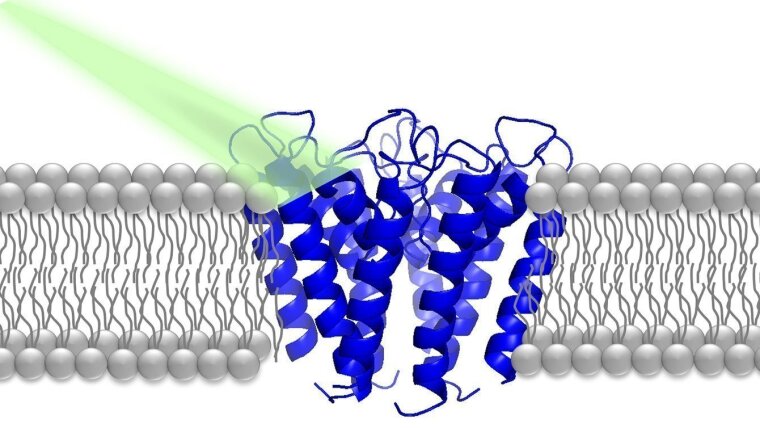
The Research Training Group Photo-Polarizable Interfaces and Membranes (PhInt) investigates and implements concepts to use light to drive (transient) structural changes at interfaces and membranes. In doing so, PHINT researches the relationship between the structure of membranes and interfaces, their light-driven reactivity and how local molecular light-driven chemical events are translated into macroscopic property changes.
Life as we know it is – to a large extent – based on photosynthesis, i.e., a light-driven process, in which the absorbed light is used to separate charges across a membrane. The resulting spatially separated redox-equivalents are used to drive the synthesis of high-energy molecules. In modern technology, light-based processes are key to modulate the function of cells, for advanced material fabrication, e.g., lithography, or data handling by fast switching of states of matter or utilizing light itself as the carrier of information. Finally, light is an indispensable tool for observation, e.g., in super-resolution microscopy for characterizing living species as well as matter. This illustrates that light drives and probes fundamental processes underlying macroscopic biological but also chemical or physical properties and functions. Moreover, light can be used to precisely control systems and processes spatially and temporally.
Scientific key words
Interdisciplinary Training and Research, Light-responsive interfaces, interdisciplinary approach combining material science, spectroscopy and theory
Participating Faculties
Chemistry and geo sciences, Physics and Astronomy, Medicine
Cooperation partner
Leibniz Institute of Photonic Technology, Jena University Hospital, Fraunhofer IOF, Deutsches Optisches Museum
Preferred language
English
Current number of doctoral candidates
12 internal (+ 12 associated PhD-students and Postdocs)
How can I become a doctoral candidate? What is the method of selection?
The recruitment and selection of doctoral researchers for PHINT relies on a standardized two-stage selection process. The recruitment and selection process are embedded into the existing framework of the Abbe School of Photonics where established protocols and tools have been implemented and successfully evaluated. Based on the application documents and online interviews with the prospective supervisor and co-supervisor, the best candidates are selected and invited to an in person recruitment at FSU Jena. The workshop involves all PIs and the scientific coordinator. During the recruitment workshop the research and qualification program of PHINT will be introduced to all candidates. Each candidate will have a face-to-face interviews. Based on the application documents and interview, the best applicants will be jointly selected by the PIs and offered a contract as a doctoral researcher within the RTG.
Are there fixed dates to apply?
Next advertising of open positions in 2027. All open positions will be advertised internationally and nationally, e.g., in online media.
Are there possibilities to be funded in this programme?
There is funding from the Research Training Group for 12 PhD-students.
Interesting for graduates of the following subjects:
Chemistry, Physics, Physiology, Physics education, Biophysics, Material Sciences
Degree
PhD
Contact
DFG-GRK „PhInt“
Friedrich-Schiller-Universität Jena
Lessingstraße 4
07743 Jena, Germany
Phone: +49(0)3641-948 469
E-Mail: phint@uni-jena.de
Spokespersons: Prof. Dr. Indra Schröder (until 02/2025: Prof. Dr. Benjamin Dietzek-Ivanšić)